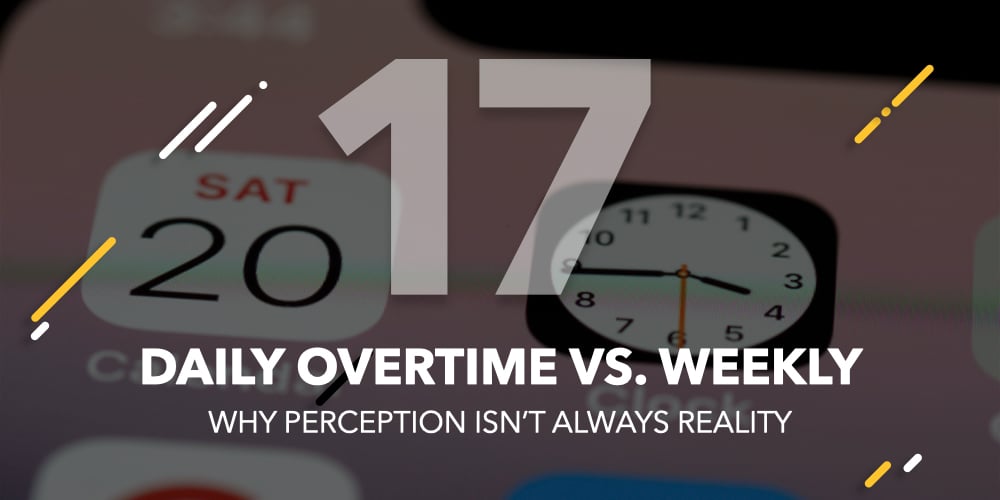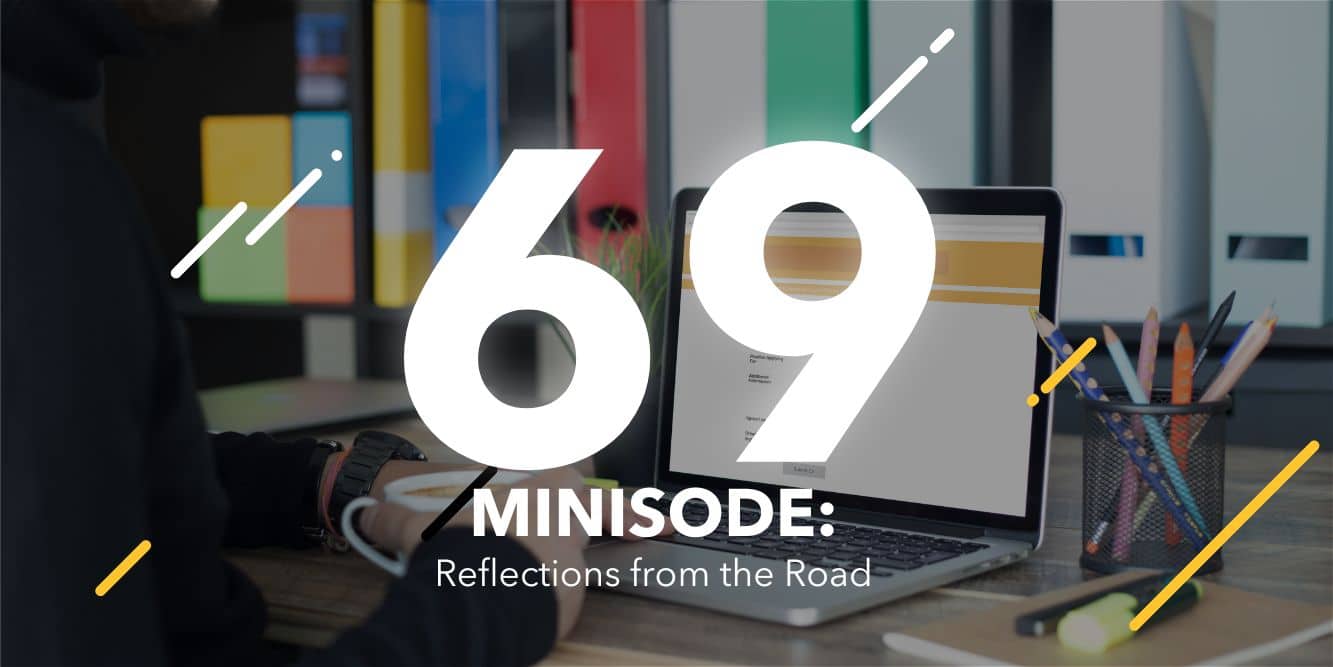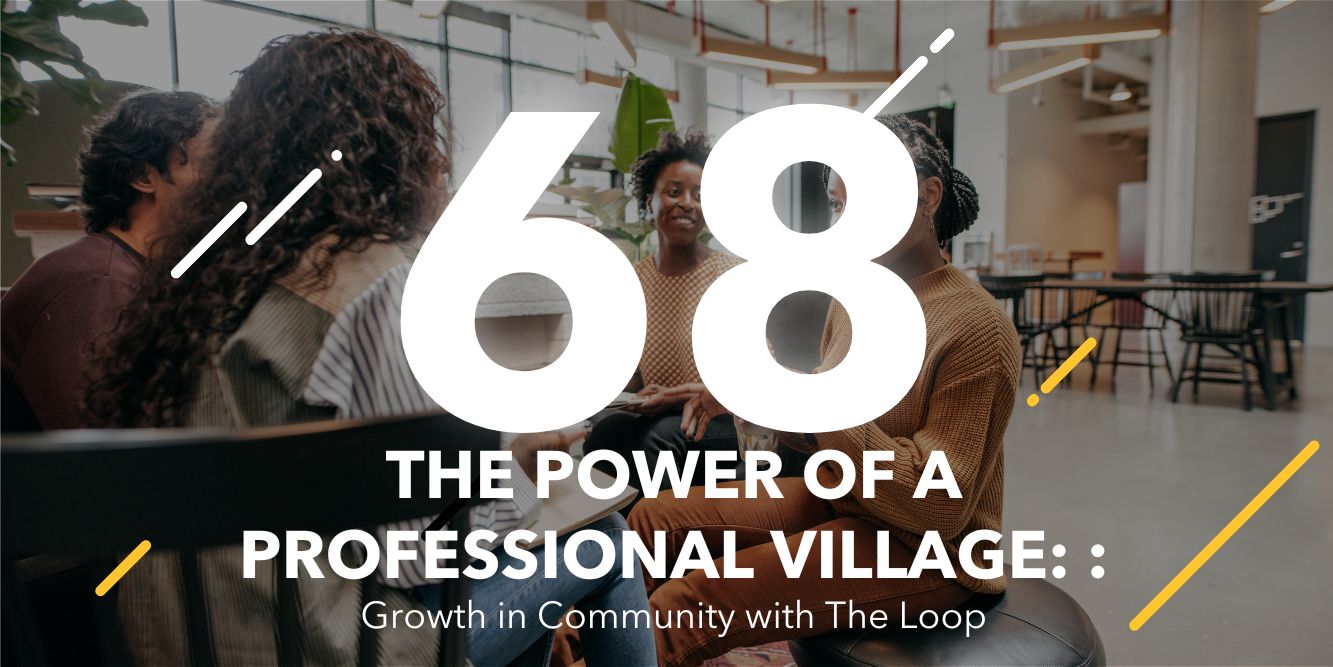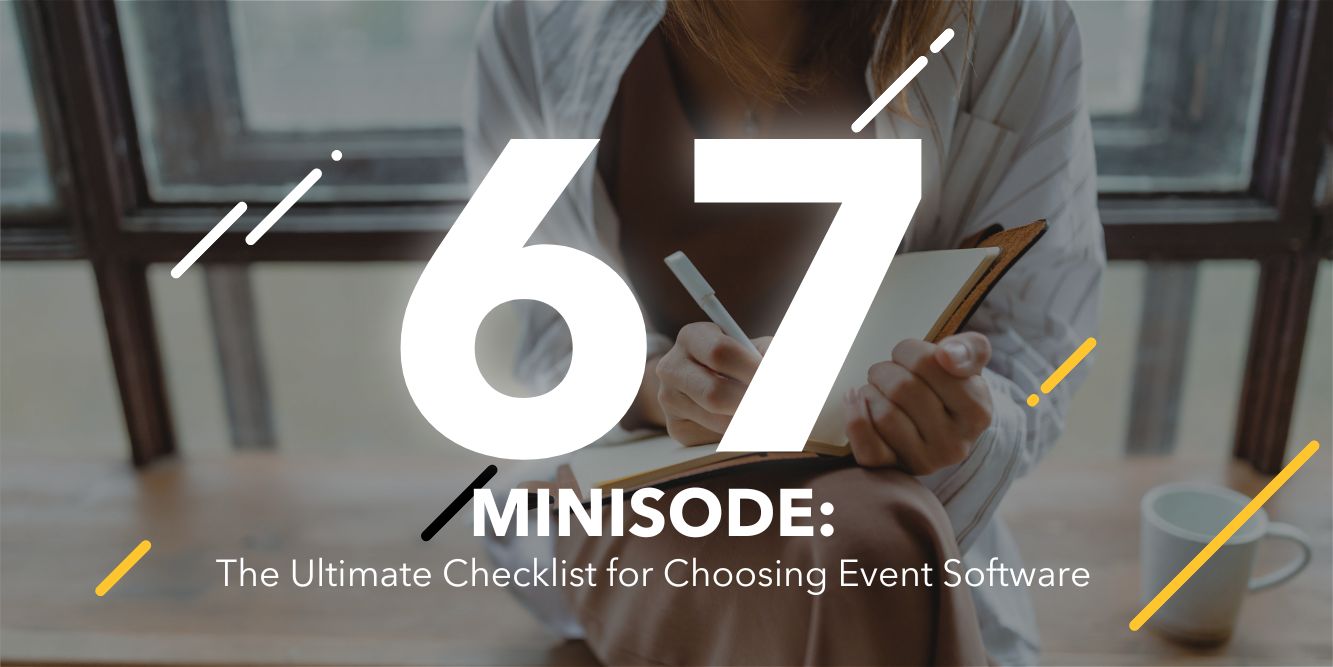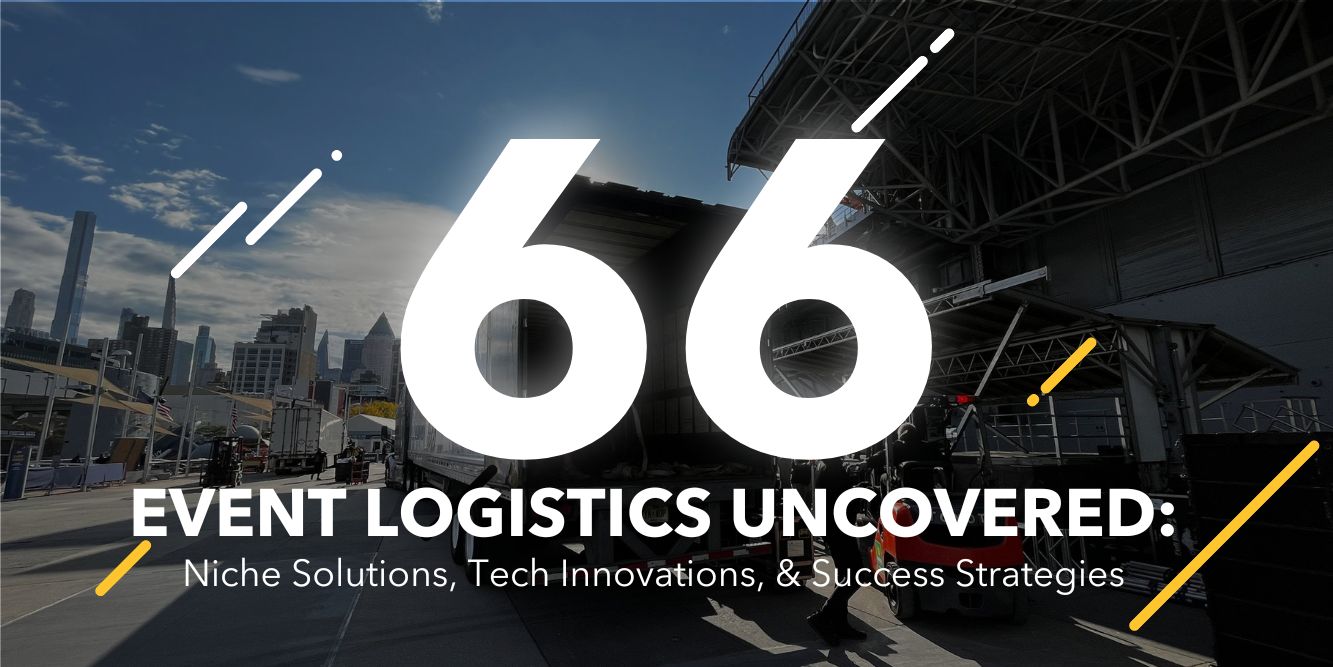Here’s What We’re Talking About 💬
- Why no one is upset about getting overtime at 8 hours vs. 10.
- How embracing change can help us progress as an industry.
- Why holding onto the “this is how it’s always been done” mentality” is costing you.
- When it comes to daily overtime vs. weekly the perception is not always the reality.
- Why sometimes daily overtime doesn’t mean you’re making more money.
- Why we need to start asking the right questions when it comes to overtime.
- How your old way of thinking is standing in your way.
Listen 🎧
Watch The Episode 📺
Read The Transcript 📚
[00:00:34] Angela Alea: Today we are going to talk about perception versus reality. Since it seems like every day I’m coming across more and more misconceptions, people operating with the wrong data, incorrect information, and really just drawing some wrong assumptions.
[00:00:53] Angela Alea: And I think we as an industry, we have to do a better job of providing clarity, and so I really [00:01:00] want to talk about that. Obviously, there’s a lot of noise out there right now with the constraint on the supply of talented people. Companies are doing great by stepping up and doing all they can to hold on to who they have and attract, who they don’t.
[00:01:15] Angela Alea: We’re seeing more people are investing in training. They’re just treating their crew better. They’re paying them more often. They’re giving them the tools to do a good job at the event site, and most are even paying their people more. I mean, that’s just what it commands right now. So these are all great things to do.
[00:01:33] Angela Alea: Some companies are even getting creative and breaking out of the norms by doing things like investing in their 401k, providing financial literacy and budgeting education, paying their people more often, and really just looking for ways overall to better support their crew. So, as our industry works to standardize a number of things, one of the hot topics is how people are paid.
[00:01:57] Angela Alea: The payrolls vary greatly across [00:02:00] companies, and that’s just led to a lot of confusion. Or the philosophy that, hey, this is how we’ve always done things, so that must be the right way. And I encourage all of us to not make any assumptions that just because something has always been done a certain way, that’s got to be the most ideal way of doing something.
[00:02:20] Angela Alea: I mean, just because the industry hasn’t ever contributed to freelancers, 401k, or their retirement, does that mean we shouldn’t? Of course not! So we need to be open, think differently. We have a chance to do it different. So, it’s gonna require us to think differently, not rely on all those old assumptions.
[00:02:39] Angela Alea: So one area where there is a disconnect between perception and reality. It’s quite honestly how overtime is paid. So I want to look at daily overtime versus weekly overtime because there’s companies that kind of fall into both camps and yes, daily overtime after 10 used to be the way it was always done.
[00:02:59] Angela Alea: Union [00:03:00] contracts of course dictated so much of that, initiated it, so many of these complicated payrolls. Then of course misclassification in AB5 became a real thing, forcing most of our industry to W2 their. companies began making the switch as they saw other companies actually go out of business due to the penalties.
[00:03:19] Angela Alea: So the collection of back taxes and penalties, it’s just not worth it. So that alone led to a huge shift just within the last 10 years, where now more than 80% of our industry w2’s their people. It’s now even the expectation as so many Fortune 500 companies are mandating that now in their contracts with the event companies, they don’t want people showing up on show site that don’t have guaranteed workers comp, that aren’t paying their payroll taxes, that aren’t providing them safe working environments and a level playing field.
[00:03:53] Angela Alea: So these Fortune 500 companies are now saying, Anybody that touches my show on site where you are [00:04:00] directing and controlling the work, They expect them to be W2. And on a side note, if you haven’t made the switch yet, you will have more outside pressure now than ever before. But that’s not what we’re here to talk about today.
[00:04:12] Angela Alea: So, Back to the daily versus weekly overtime debate. So daily overtime after 10, of course used to be the norm. But in California, as we all know, it’s now after eight hours in a day. I mean, is anyone complaining that daily overtime, after 10 hours in California is now illegal? Are we saying, hey, that’s not how we do things.
[00:04:35] Angela Alea: Don’t pay me overtime after eight, It’s only after 10. That’s the industry norm. No, of course we’re not. People love getting overtime after eight instead of 10. That is now the standard because legislation made it so, so the sooner we get comfortable with some of these mandates and changes, the faster we can progress as an industry.
[00:04:54] Angela Alea: And it doesn’t mean we’re trying to take money out of your pocket. It doesn’t mean it’s going to cost you more. [00:05:00] It’s also now an industry standard for safety protocols to be followed. However, that wasn’t always the case or always standard, and at some point we just have to decide to do what is right and forget the way it’s always been.
[00:05:14] Angela Alea: case in point on how perceptions can sometimes be so different from reality when it comes to paying daily overtime versus weekly. And I am going to use this example outside of California since that rule is fully baked at this point. If you work past eight hours in California, you are eligible and do overtime.
[00:05:34] Angela Alea: And if it’s past 12, it’s double. So the case in point, one of our crew this week had an interesting revelation. He reached out very upset because he worked over 10 hours on one day in the run of a show, and he didn’t get daily overtime, even though our policy stated that signed off on it. And look, I get it.
[00:05:55] Angela Alea: Change is hard, right? You’re used to doing what’s always happened. And he said, [00:06:00] this is an industry-standard and I expect to get daily over. So the perception out there is you’re gonna make less if you don’t get daily over time. So I have two observations on that statement. One is sometimes that can be true and the other is, sometimes that is false, and as anyone new to the industry learns so quickly, the answer to most things around here is it depends.
[00:06:26] Angela Alea: I feel like that is the standard non-answer all the time. And why does everything have to depend in our industry? Why can’t we have some absolutes, some standards, some clarity, some predictability? We’re never gonna reach our potential if everything just depends. There have to be some absolute some.
[00:06:46] Angela Alea: Predictability, some norms. So the perception for this person was he lost money not getting paid daily overtime on this job because he’s been used to getting paid daily over time with other companies. The reality, [00:07:00] however, is very different. In this scenario, he made $10 more per hour than any other company he works with.
[00:07:09] Angela Alea: But all he saw was he wasn’t getting daily overtime. So when I looked at his actual compensation and actual hours worked over the last year, less than 1% of the time would he even been eligible for daily overtime? So the amount of times that he worked on the types of shows that he does, less than 1% of the.
[00:07:31] Angela Alea: Did he work a day that exceeded 10 hours? So when I looked at his actual compensation, here’s what I found. Because he was making $10 more an hour on all hours up to 10 and still gets overtime after 40, he actually made almost $1,700 more without getting any daily over. And of course when I discuss, because look, I, we, the goal is a balance, right?
[00:07:57] Angela Alea: You never want to take. You want something [00:08:00] for them, not from them. And so I get it right? Change is hard. You, start working under one perception. Then when something else different happens, it’s frustrating. So I’m like, Hey, let’s talk about it. Let’s, let’s figure out a solution. So when I discuss just paying him his standard pay rate rather than the $10 or more that we gave him instead of his pay rate, normal pay rate, but offered to give him daily overtime.
[00:08:25] Angela Alea: He, of course, opted to stick with his current paycheck. Reality is fact. It is the truth. No matter how strongly he believed he lost money, the reality was he made more, a lot more $1,700 more. So let’s stop being blinded by our perceptions and let’s pause to learn to unpack things, to ask the right questions to get to the factual answer.
[00:08:49] Angela Alea: Facts matter. So there’s so many wrong perceptions out there. You think you’re gonna make more as a 1099. Wrong. I’m gonna say it again [00:09:00] wrong. That is an absolute. That is a fact. You actually pay double the taxes. You now pay for your worker’s compensation, which means you bring home less, and yeah, you can still expense things.
[00:09:11] Angela Alea: That is a fact. Working your whole career as a 1099 doesn’t change this fact either. You think you’ll make more being paid with your regular rate with daily overtime, not usually given. You aren’t guaranteed long days. But you are guaranteed your hourly rate. So look at the whole picture and don’t get paralyzed with stink and thinking so much is changing for our industry, and my hope is we can all embrace it.
[00:09:36] Angela Alea: Change will make us better. Be open and don’t let your old way of thinking stand in your way. That’s it for today. If you like what you heard, don’t forget to subscribe and reach out to us with any comments at podcast@lasso.io.
You might like: What is AB5 Law and How Does It Impact The Event Industry?

